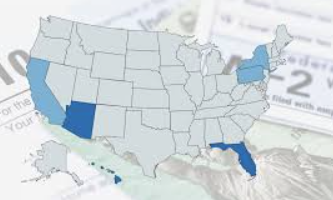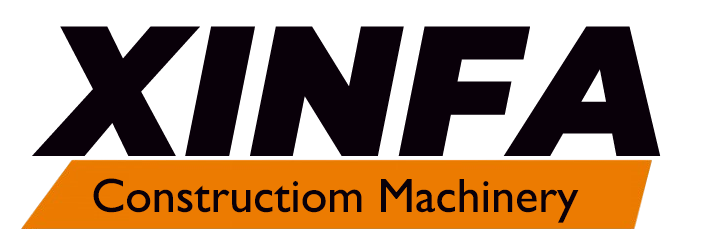Single Post
Posted by: Alice Liu
Comments: 0
Post Date: 27 Sep 2025
A Complete Guide to Sales Tax on Rentals and Leases Across the U.S.
Introduction
When engaging in rental or lease transactions in the United States, understanding the sales tax implications is crucial. Sales tax laws vary significantly across states, and knowing where and how these taxes apply can help businesses and consumers avoid unexpected costs and ensure compliance.

States That Impose Sales Tax on Rentals and Leases
1. California
California applies a statewide sales tax rate of 7.25%, which can be higher in certain local jurisdictions due to additional district taxes. This rate applies to most tangible personal property rentals and leases, including equipment and vehicles. Businesses must collect and remit sales tax on these transactions.
Rental of tangible personal property is generally subject to sales or use tax unless tax was already paid at the time of purchase, or the property is taxed based on its purchase price during the lease.
Official Link
2. Florida
Florida charges a 6% state sales tax on equipment rentals. Additionally, counties can impose local surtaxes, which vary by location. For instance, Miami-Dade County has an additional 1% surtax, making the total sales tax rate 7% for equipment rentals in that area.
Official Link
Florida Department of Revenue – Sales & Use Tax Guide
er Florida Statutes Section 212.031, leases, rentals, or licenses to use tangible personal property are subject to the state sales tax plus applicable local surtaxe
3. Texas
Texas generally does not impose sales tax on equipment rentals. However, if the rental includes an operator, it may be classified as a taxable service rather than a rental, subjecting it to different tax rules. Businesses should carefully evaluate their rental agreements to determine the correct tax treatment.
Texas Administrative Code, Section 3.294, stipulates that rental of tangible personal property is generally subject to sales tax unless specific exemptions apply.
Official Link
Texas Comptroller – Sales & Use Tax
4. Washington
Washington state imposes a 6.5% statewide sales tax, with local rates varying based on location. Additionally, there is a 1.25% heavy equipment rental tax for specific types of equipment. Businesses must ensure they apply the correct tax rates based on the equipment type and rental location.
According to Washington Administrative Code 458-20-211, rental of tangible personal property to consumers is subject to retail sales tax, based on the rental amount.
Official Link
Washington Department of Revenue – Leases & Rentals
5. New York
New York State imposes sales tax on rentals of tangible personal property. However, certain exemptions may apply, such as for rentals of property used directly and predominantly in manufacturing or production. Businesses should consult state guidelines to determine eligibility for exemptions.
New York Tax Law Section 541.9 requires contractors and lessees to pay sales and use tax on equipment and vehicle rentals.
Official Link
New York State – Quick Reference Guide for Taxable and Exempt Property & Services
States Without General Sales Tax
Five U.S. states do not impose a general statewide sales tax:
- Alaska: While there is no state sales tax, local governments can levy taxes on certain goods and services.
- Delaware: Does not impose a general sales tax but has a gross receipts tax on businesses.
- Montana: No state sales tax; however, certain resort areas may impose local taxes.
- New Hampshire: No general sales tax, but imposes a meals and rooms tax.
- Oregon: No state sales tax; local governments may tax certain goods like tobacco and prepackaged alcohol.
Importance of Understanding Sales Tax on Rentals
For businesses involved in renting or leasing tangible personal property, understanding the sales tax obligations in each state is essential. Failure to comply with state and local tax laws can result in penalties, interest, and potential audits. It’s advisable to consult with tax professionals or legal experts to ensure compliance and optimize tax strategies.
Direct Impact of Rental Sales Tax on Mini Excavators
- Increased Rental Costs
- In states that impose sales tax on equipment rentals (e.g., California, Florida, Washington), businesses must pay the tax on top of the rental fee.
- Example: California sales tax is 7.25%. Renting a mini excavator at $1,000/month results in a total cost of $1,072.50/month.
- Short-term vs Long-term Rentals
- Some states provide exemptions or special rules for long-term rentals (e.g., New York offers partial exemptions for equipment used predominantly in manufacturing).
- This means businesses opting for long-term rental contracts may save on tax costs.
- Impact on Rental vs Purchase Decisions
- Businesses may compare leasing vs purchasing:
- Purchase: One-time sales tax payment, fixed long-term cost.
- Lease: Monthly payments with sales tax, more flexible short-term but potentially higher total tax costs.
- Businesses may compare leasing vs purchasing:
Impact on Multi-State Operations
- Varying Tax Rates by State
- Renting the same mini excavator in different states can result in significantly different tax amounts.
- Companies must calculate taxes based on the rental location to avoid unexpected costs.
- Compliance Risk
- Multi-state rental operations must follow each state’s sales tax regulations.
- Failure to comply may lead to penalties, interest, or audits from state tax authorities.
Impact on Small Contractors and Rental Companies
- Pricing Strategy
- Rental companies need to include sales tax in rental quotes to maintain profitability.
- For small contractors, sales tax can account for 5–10% of the rental cost, significantly affecting budgets.
- Financial Management Complexity
- Multi-state rentals require tracking varying tax rates and remittance records.
- Some states allow rental companies to collect and remit taxes on behalf of customers, simplifying management but still requiring compliance.
Conclusion
Sales tax on rentals and leases varies widely across the United States. While some states impose sales tax on these transactions, others do not. Businesses and consumers must be aware of the specific tax laws in their respective states to avoid unexpected costs and ensure compliance. Always consult with tax professionals to navigate the complexities of sales tax regulations effectively.
Rental sales tax directly increases costs, which is particularly significant for mini excavators due to their high rental rates and long usage periods.Multi-state rentals require awareness of state-specific policies to avoid compliance issues or higher costs.
Businesses should consider rental duration, tax rates, and location when deciding between leasing and purchasing; sometimes purchasing may be more cost
effective than leasing.
